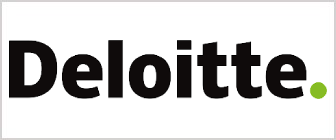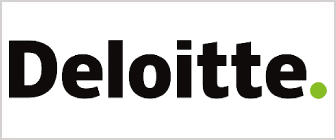Interview with Chris Atkinson, Partner, Tax & Legal, Deloitte Australia
1. What is the most significant change to your region/jurisdiction’s tax legislation or regulations in the past 12 months?
In recent months, Australia has proposed or introduced a host of changes to income tax legislation that impact multinational corporations. This has included new thin capitalization rules removing asset-based safe harbors, debt creation rules with retrospective effect, changes to our general anti-avoidance rules, and significant new tax transparency measures. The challenge for multinationals has been the pace of change and the lack of clarity provided prior to the laws coming into effect. For example, the new thin capitalization rules have retrospective application from 1 July 2023, but we still do not have final legislation as of 28 November 2023.
Another fundamental change has been a shift in dynamics with the Australian Taxation Office (ATO) and how the tax profession and large corporations are viewed in society.
2. What has been the most significant impact of that change?
Taxpayers are having to make significant decisions about their capital structure without the benefit of final legislation, with the overhang of an announced expanded anti-avoidance rule with little detail regarding its precise form. There is also more scrutiny than ever before on the tax profile of multinational corporations.
3. How do you anticipate that change impacting your work and the market moving forwards?
Due to how our general anti-avoidance rules are drafted and new debt creation rules, I expect disputes will arise regarding taxpayers who restructure to comply with the new thin capitalization rules.
More broadly, the market will need to adapt to this era of increased transparency and operate on the expectation that today’s decisions will be scrutinized against tomorrow’s societal expectations.
4. How has this changed the way you offer tax advice?
Tax professionals have continued to evolve from providing technical advice on specific provisions/narrow issues to providing holistic advice that solves the actual client problem. This includes thinking about governance, broader societal impacts, and the relationship with the regulator ATO.
5. What potential other legislative/regulatory changes are on the horizon that you think will have a big impact on your region/jurisdiction?
In addition to those highlighted above, Pillar 2 is another significant topic for taxpayers that is announced but without draft legislation. In the next 12 months, we should also see our first case on the “new” transfer pricing rules introduced in 2013 (Division 815-B) in the Federal Court.
6. What are the potential outcomes that might occur if those changes are implemented?
I hope that an equilibrium is found with respect to transfer pricing. At the moment, there is a lot of uncertainty regarding how multinationals should price their related-party transactions. For example, with respect to related party financing, while it is now clear that one cannot assume that a subsidiary of a multinational group is a standalone entity/orphan, there is a real question of what features can and should be taken into account.
For example, the most recent Federal Court decision has applied this concept widely to suggest that a subsidiary would have benefitted from a parental guarantee at no cost. The challenge with this approach is that there is now a new non-arm’s length dealing in the form of the guarantee. The decision on appeal should be handed down in the coming weeks/months.
7. Do you think that change will have a positive effect on both your practice and the wider regional/jurisdictional market?
In general, taxpayers benefit when the law is clarified. In areas such as transfer pricing, decisions may have greater implications across the region and globally as concepts of what is and what is not-arm’s length may be adopted or alternatively challenged, creating a constantly evolving landscape for taxpayers.
8. Are there any regulatory/legislative changes you believe should be implemented in your region/jurisdiction?
In the near term, all changes regarding transparency and taxation of multinationals should very closely mirror OECD best practices to enable consistency across jurisdictions.
9. How would you describe the tax authorities’ approach in your region/jurisdiction?
The ATO is very well-resourced and seeks to engage with businesses actively. In recent years, there has been a focus on tax assurance rather than audit, which involves a close examination of an organization’s tax governance and approach to taxation. This is backed up by a close focus on Australia’s largest organizations in the form of a ‘top 100’ program, which consists of a rolling annual review by the ATO, and the ‘top 1000’ program for the next tier of organizations, which reviews those companies approximately every four years. As a result, the ATO is monitoring taxpayer affairs on a “real-time” basis more than before, reviewing all aspects of an organization’s business. Matters not able to be assured within the timelines set by the ATO in the top 100/1000 programs are identified for further review or audit. We have also seen a rise in the level of cross-jurisdictional sharing of information between revenue authorities, coupled with the increased use of the ATO’s extensive formal powers to compel the production of documents or evidence.
This document has been prepared solely for the purpose of publishing in the 2024
ITR World Tax Guide and may not be used for any other purpose. This document
and its contents may not be reproduced, redistributed, or passed on, directly or
indirectly, to any other person in whole or in part without Deloitte’s prior written
consent.
Deloitte refers to one or more of Deloitte Touche Tohmatsu Limited (“DTTL”), its
global network of member firms, and their related entities (collectively, the
“Deloitte organization”). DTTL (also referred to as “Deloitte Global”) and each of its
member firms and related entities are legally separate and independent entities,
which cannot obligate or bind each other in respect of third parties. DTTL and each
DTTL member firm and related entity is liable only for its own acts and omissions,
and not those of each other. DTTL does not provide services to clients. Please see
www.deloitte.com/about to learn more.
This communication contains general information only, and none of Deloitte
Touche Tohmatsu Limited (“DTTL”), its global network of member firms or their
related entities (collectively, the “Deloitte organization”) is, by means of this
communication, rendering professional advice or services. Before making any
decision or taking any action that may affect your finances or your business, you
should consult a qualified professional adviser.
No representations, warranties or undertakings (express or implied) are given as to
the accuracy or completeness of the information in this communication, and none
of DTTL, its member firms, related entities, employees or agents shall be liable or
responsible for any loss or damage whatsoever arising directly or indirectly in
connection with any person relying on this communication. DTTL and each of its
member firms, and their related entities, are legally separate and independent
entities.
© 2024. For information, contact Deloitte Global.


